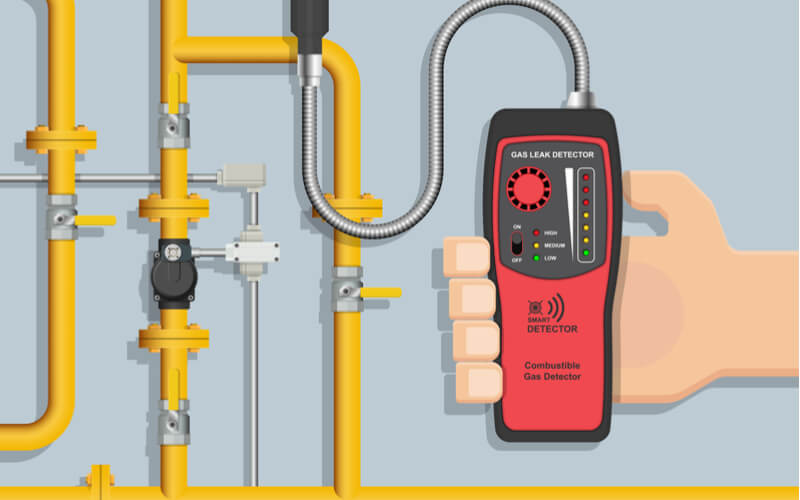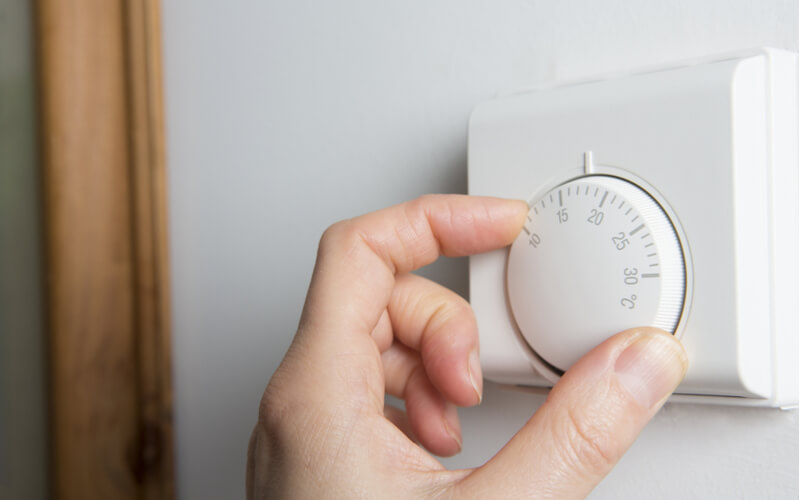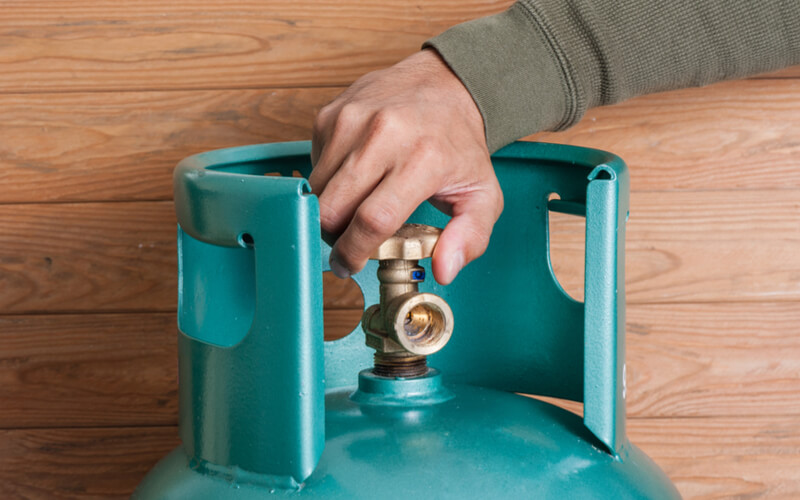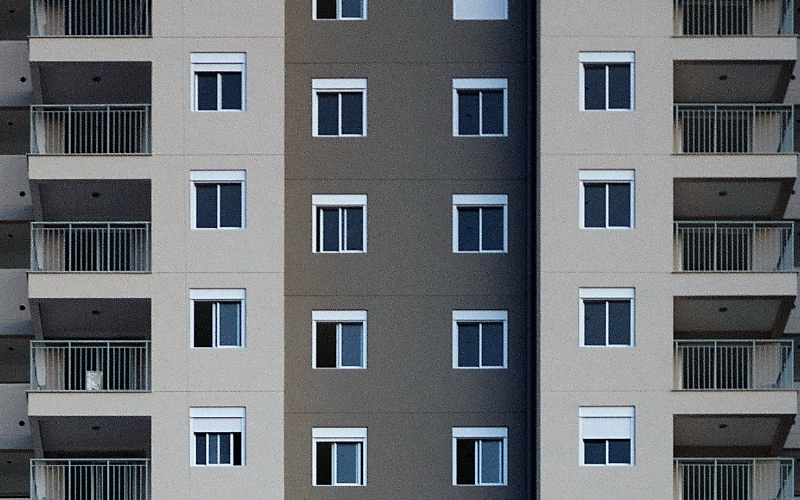Gas safety, heating and hot water
This guide covers social landlords’ responsibilities when providing heating and hot water to residents, whether this is by individual property-based systems, such as domestic gas boiler or by communal systems, including district heating.

Gas safety, heating and hot water – Q&A briefing (updated November 2020)
Q. How does gas safety relate to the new Building Safety Bill?
Gas safety is one of the factors that will need to be taken into account when developing the Building Safety case for each higher-risk building under the proposals in the Building Safety Bill. This will involve landlords assessing gas safety for each higher-risk building as well as ensuring that it is fully compliant across all its stock on gas safety certificates.
Q. What should social landlords do?
They should:
- appoint Building Safety Managers for each higher-risk building
- ensure that they have systems that will record the gas safety risks and keep these risks updated for each higher-risk building as well as systems to record compliance with gas safety certificates for all their homes.
Q. Where can social landlords find more information on the Building Safety Bill?
The NHMF Best Practice website has detailed Q&A briefing on the Building Safety Bill.
Amended gas safety regulations - what's happening?
-
When will the amended Gas safety in use Regulations come into force?
The Gas Safety (Installation and Use) (Amendment) Regulations 2018 came into force on 6 April 2018.
-
What are the amendments?
Regulations 2(4) (g), 26(9) (c) and 36(3) will be amended but it is Reg. 36(3) that is most relevant to social landlords because this will introduce flexibility in the timing of landlords’ annual gas safety checks (i.e. MOT style), and clarify which defects should be recorded.
-
Will these amendments affect gas safety?
The amendments to the Gas Safety (Installation and Use) Regulations 1998 (GSIUR) do not relax regulatory requirements or reduce safety standards but are designed to allow flexibility as to when the annual gas safety checks can be carried out.
-
What are the benefits of the amended Regulation 36(3)?
The amendment introduces a degree of flexibility to the timing of when landlords’ annual gas safety checks can be carried out. This MOT-style amendment means that landlords can carry out the annual gas safety check in the two months before the ‘deadline date’ (defined in the regulations) but still retain the existing expiry date. This avoids landlords waiting until the last minute and not being able to gain access, or having to shorten the annual cycle check to comply with the law. There is no change to the legal requirement for an annual gas safety check or for maintenance to be carried out.
-
What guidance is available for landlords?
HSE has published a new Approved Code of Practice and guidance that will apply once the amendments come into force on 6 April 2018. It gives guidance on how to meet the requirements of GSIUR and the 2018 amendment regulations. This guidance is for anyone who may have a duty under the GSIUR, including those who install, service, maintain or repair gas appliances and other gas fittings. Landlords also have duties under these regulations. You can download a free copy of the draft Approved Code of Practice L56 (Fourth edition) from the HSE website.
-
What action should landlords take to be ready for the amended Regulation 36(3)?
Landlords should review their existing arrangements for annual gas safety checks against the guidance in the new Approved Code of Practice L56 to consider what changes they wish to make to their procedures and contracts. Tender specifications for new gas servicing and safety contracts should allow for the MOT-style flexibility provided by the amendments. It will be important that systems are in place to record and maintain the annual gas safety check renewal date.
-
Do landlords have to use the new flexibility?
There is no requirement for Landlords to use the flexibility provided by the MOT-style safety checks but they would then need to ensure that they have carried out the annual gas safety check by its ‘deadline date’ (precise 12-month anniversary).
-
Would the amended Regulation 36(3) help with problems of gaining access?
Only partially because the amended regulation will help with some of the problems of gaining access by enabling landlords to start the annual cycle with sufficient time to allow for any legal and court procedures to gain access. The proposed flexibility offered by MOT-style checks would reduce the costs of servicing homes more frequently than legally required. Landlords would still have the costs for legal action to gain access.
-
Are there other ways to address the access problem?
Yes – one way would be for landlords to target, for early engagement, only those homes where there have been problems with gaining access for gas safety checks in the past. This would enable the majority of stock to have planned annual servicing and gas safety checks on a yearly cycle. Another way would be publicise the safety risks and consequences of tenants refusing access. For example the risks to adjoining tenants of a gas explosion where a tenant has refused access for their annual gas safety check. Where access has been gained using a court order, new locks would be fitted and the tenants would have the inconvenience of collecting new sets of keys before they could return to their home. New tenancy agreements can be drafted to make clear that tenants have to provide access for all statutory checks, such as annual gas safety checks, fire risk assessments.
Legislation and statutory requirements
Gas Safety (Installation and Use) Regulations 1998 as amended came into force on 6 April 2018. Regulation 36 of the 1998 Regulations makes all landlords responsible for:
- Maintaining gas fittings and flues associated with their property in a safe condition
- Checking those gas fittings and flues annually
- Keeping records of those checks for at least two years
- Ensuring that all checks and work on these gas fittings and flues are carried out by a person approved by HSE (currently those listed on the Gas Safe Register)
The Regulations apply in England, Wales, Scotland and Northern Ireland.
HSE’s Gas Safety (Installation and Use) Regulations 1998 as amended Approved Code of Practice (ACOP) and guidance gives practical advice on these regulations for those who install, service, maintain or repair gas appliances and other gas fittings, as well as for landlords who have duties under Regulation 36. HSE’s website also provides links to other references, frequently asked questions (FAQs) and guidance for landlords. This guidance includes an explanation of what should be done when landlords cannot access a property for the annual gas safety check.
Enforcement
The Gas Safety (Installation and Use) Regulations are enforced by HSE but product safety is controlled by Department of Business, Innovation and Skills and enforced through local authority trading standards officers. Separate enforcement arrangements operate in Northern Ireland, which has its own hseni.
Housing regulators
In England, the Regulator of Social Housing (RSH), requires registered providers to comply with its Regulatory Standards. On 1 October 2018 the RSH became a standalone public body, independent from the Homes and Communities Agency (HCA). On 11 January 2018, the HCA’s non-regulation arm adopted its new trading name Homes England. Managing gas safety, heating and hot water is covered by the Home Standard that requires meeting all statutory requirements for the health and safety of occupants.
In Wales, all social landlords are required to meet and maintain the Welsh Housing Quality Standard (WHQS) as soon as possible, but in any event no later than 2020. The WHQS specifies that the gas service and safety inspection certificate must be current. All heating installations and appliances must be checked and certified safe by an appropriately qualified person at least annually and as required by law.
In Scotland, social landlords are required to meet the minimum Scottish Housing Quality Standard (SHQS) by 2015. Meeting the SHQS includes compliance with the Technical Guide for healthy, safe and secure homes. The Scottish Housing Regulator expects compliance with all statutory and regulatory obligations including gas safety.
In Northern Ireland the Department for Social Development regulates registered housing associations under the Regulatory Framework for Registered Housing Associations in Northern Ireland 2006. Regulatory Standard 3.3 states that housing associations must develop, manage and maintain good-quality homes that seek to meet people’s needs and preferences now and in the future. This includes meeting the Decent Homes Standard and compliance with all statutory and regulatory obligations including gas safety.
Landlords’ responsibilities
Landlords are only responsible for the gas appliances they provide, typically gas boilers and gas fires. Any gas appliance provided by the tenant is not the landlord’s legal responsibility and so is not part of the annual gas safety check. However, such appliances still pose the same safety risks and so landlords should consider whether, in the interests of safety they should provide all gas appliances for a property so that they are included in gas safety checks.
Although there is no legal requirement on a landlord to carry out a gas safety check for leasehold and shared owners gas appliance it would be advisable to seek legal advice, particularly when the accommodation is a flat and the landlord owes a duty of care to other occupants of flats.
Compliance – good and efficient practice
For efficiency and economy, annual gas safety checks are normally included in the gas servicing contract. However, achieving and maintaining 100% compliance with annual gas safety checks is challenging, time-consuming and expensive because of the difficulties of gaining access for all these annual checks. In many cases gaining 100% access adds tens of thousands of pounds to gas servicing contracts as well as incurring legal fees and delays where access is denied. To reduce costs and delays, the following approaches can be used:
-
Identify those properties where access has not been straightforward
-
Target only those properties with early requests (i.e. 12 weeks before renewal) for an appointment for the annual gas safety check. Under the Amendment Regulations 2018 all other properties can have their gas safety check up to two months before the ‘deadline date’ but landlords need to have systems are in place so that they can record and maintain the annual gas safety check renewal date
-
Keep Housing Management informed of difficulties with access and they may be able to provide additional information e.g. resident in hospital or prison
-
Keep good records of attempts to gain access and of any final warnings
-
Start legal proceedings in time to get warrant for access before the annual gas safety check is due
-
Publicise legal proceedings and implications to encourage tenants to grant access on first request
-
Consider using agencies (such as Safe & Healthy Homes see Jersey Study Tour presentation) to reduce legal costs and delays
-
Some landlords, when new gas boilers are installed, include service interrupters to the gas supply that will operate if the annual gas safety check has not been completed so that residents have to provide access for the interrupter to be reset while the check is carried out.
In addition to complying with gas safety legislation above, equipment and installations should be maintained in accordance with manufacturer’s recommendations.


